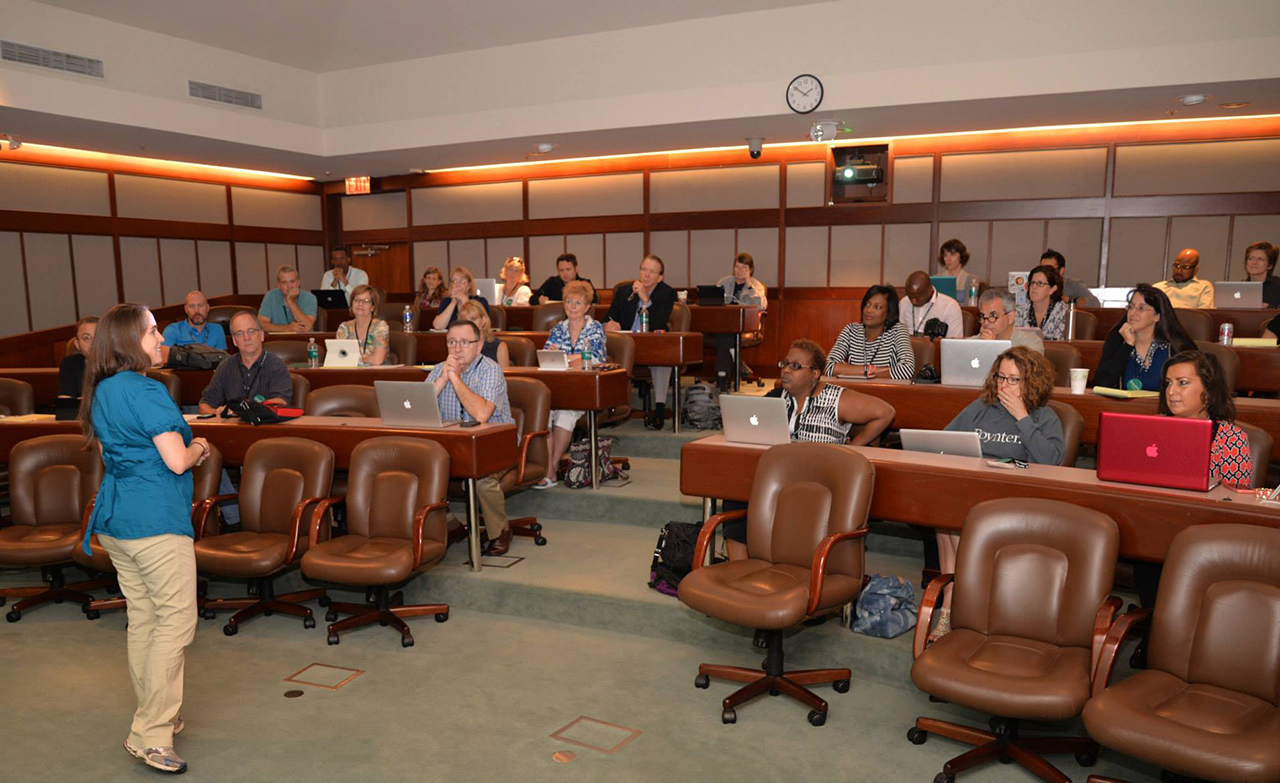A few years back, I responded to a call from journalism funders that media programs move forward and innovate with my own call. If you want teachers to move toward the cutting edge of news, I argued, fund training to help them get there. While I’ve seen progress in the intervening years, training is more important than ever but funding for it remains elusive.
I was always intrigued by the “teaching hospital” metaphor — the notion that journalism schools, like academic medical centers, should engage in research to advance the field while training students and practitioners. But I thought something was missing from the comparison: the critical element of continuing medical education.
CME is central to the medical model in the U.S. Continuing ed also is important in other professions, such as law and engineering. Professionals benefit from training in the latest strategies and approaches, but educators learn, as well. Journalism schools would benefit from a similar emphasis on getting faculty and instructors training in current storytelling techniques and the tools to deliver messages to audiences.
This EdShift series explores the impact of training on today’s J-Schools and how access to the latest ideas moves us all forward.
Series Posts
To Stay Fit and Energized as a Journalism Educator, Hit the Training Gym, by Rick Brunson
Tech Tools to Improve Your Teaching, by Stacy Forster
Maker Spaces, Gender Gaps and Helping Young Women Succeed, by Susan Zake
How Training Inspired Me to Bring Journalism and IT Together, by Kanina Holmes
Why Training is Rewarding for Teachers, by Mark Johnson
Other Coverage
Upcoming Trainings and Courses: Apr. 19 Edition, by Ben DeJarnette
MediaShift Launches DigitalEd Media Training with RJI, BigMarker as Partners, by James Buck
Special Series: Poynter’s Teachapalooza IV, by Kathleen Bartzen Culver
Teachapalooza: Building the Clinical Model of Teaching into a Journalism Curriculum, by Stacy Forster
Journalism Done Audience First: Takeaways from Journalism Interactive 2015, by Deb Wenger
Kathleen Bartzen Culver (@kbculver) is an assistant professor in the School of Journalism & Mass Communication at the University of Wisconsin-Madison, teaching and researching at the intersection of ethics and digital media practices. Culver also serves as associate director of the Center for Journalism Ethics and education curator for MediaShift.

